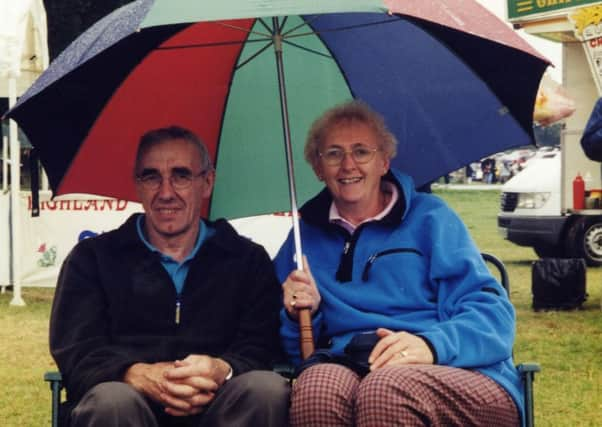Lessons learned from chemo trial woman's death, says coroner


The coroner said ovarian cancer sufferer Joyce Spratt had “bravely” put herself forward for a new chemotherapy treatment in order to help both herself and medical science, but that the condition from which she died could also have been caused by regular chemotherapy.
Mrs Spratt had died at Belfast City Hospital on March 22, 2002, after suffering from a rare intestinal inflammation condition called typhlitis, caused by the chemotherapy, as well as peritonitis.
She was 53 and from Crossgar.
Advertisement
Hide AdAdvertisement
Hide AdDelivering a long and complex narrative verdict into her death on Thursday – which had already been the subject of an earlier inquest – the coroner Joe McCrisken said that due to the clinical trial for which she had put herself forward, the lives of many people “have been saved and extended and their families have benefited as a result”.
He added: “Mrs Spratt’s family who are here today really should feel very proud about that.”
The earlier hearing on Wednesday had heard concerns aired about the trial and the standard of her care.
Delivering his findings, the coroner said it is “all too easy to get involved in criticising” the healthcare profession, and overlooking the lifesaving work they do.
Advertisement
Hide AdAdvertisement
Hide AdThe coroner’s court heard Bobby Spratt, her husband of 32 years, believed she had been treated as a “guinea pig”.
“That’s not the case,” said the coroner.
The court heard that Mrs Spratt’s chances of survival were very low without chemotherapy treatment.
The coroner said she had “bravely” volunteered to take part in the chemotherapy trials “for her own health, and for the health of other women”.
He said the fatal condition which afflicted her could also have been caused by “a normal chemotherapy regime”.
Advertisement
Hide AdAdvertisement
Hide AdChemotherapy in general acts as a “poison to the body,” he said.
He added: “Having considered all the evidence, I have no concerns about the clinical trial.”
The previous day’s coroner’s hearing was told that oncology registrar Dr Paula Scullin had examined her on March 19.
She said she did not detect a high temperature, but did not record the reading.
Advertisement
Hide AdAdvertisement
Hide AdThe coroner concluded that the reason no exact number was recorded was because “the temperature taken was normal, and so Dr Scullin didn’t feel she needed to record it”.
The coroner noted that cancer surgeon Sigi Refsum – a “hugely experienced” professional – had indicated that the death rate from typhlitis is as high as 70%.
He said if Mrs Spratt had been admitted to hospital on March 20 shortly after 8.30pm, instead of in the early hours of March 21, there would have been a slightly better chance of recovering from typhlitis, but he could not be certain how much.
The court was told that basically “no-one had heard of it [typhlitis]” in the UK before 2002.
Advertisement
Hide AdAdvertisement
Hide AdHe said he had spoken to a Dr Poole on the telephone on Wednesday, who had examined her case after her death.
The coroner said that while knowledge of the condition may still not be widespread, Prof Poole himself now considers typhlitis as a matter of routine when he is considering patients’ symptoms.
“On reflection, I think Mrs Spratt’s family can be satisfied that lessons have been learned,” he said.
TRUST ADMITTED SHORTCOMINGS
On Wednesday the inquest heard that Belfast Health Trust recognised that there were “certain elements of the treatment” that were “not of the standard it ought to have been”.
Advertisement
Hide AdAdvertisement
Hide AdThis included being advised to see her GP after phoning a dedicated helpline to report that she was unwell.
It also said there was better management of the “toxicities that flow from chemotherapy”, improved guidelines for staff, that patients are given more information of the warning symptoms to look out for, and have a reliable 24-hour helpline service with “chemotherapy-competent nursing staff.”
Outside court on Thursday, the family solicitor Ernie Waterworth said: “The changes that have come about in relation to the treatment of this, we’re satisfied the trust have taken on board the learning from this case”.
He said the family themselves were “very proud of Joyce – she’s very courageous”.
Advertisement
Hide AdAdvertisement
Hide AdHowever, he added that a sizeable quantity of evidence in the case had not been presented to them until 10am the previous day, and that this had not been available at the earlier inquest.
He said: “It’s unfortunate that it took 14 years for the evidence to be finally presented.”